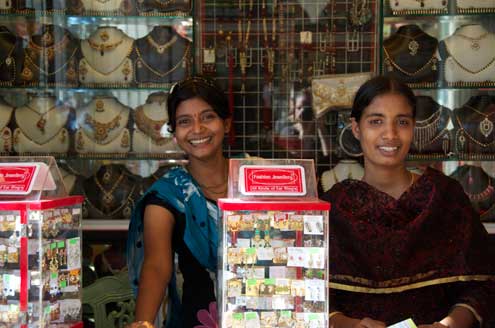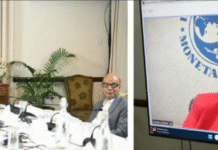
By 2020, Bangladesh will have a population of 170 million – and half of this population will be made up of women. If the country is to achieve the 8 percent GDP growth it hopes for, making sure that women entrepreneurs are able to reach their full potential and fully contribute to the economy will be essential.
According to an Asia Foundation study of the business environment in Bangladesh, male- operated small and medium sized enterprises (SME) far outnumber those led by women SME entrepreneurs, and only 69 of the 3,800 firms in the sample have at least one female owner. This means that less than 2 percent of firm owners in the country are women.
While women’s contributions have great potential for bolstering the country’s economy, women still face obstacles in accessing finance, information, and access to domestic and international markets, and are insufficiently equipped to face the challenge of finding innovative product solutions. For example, research indicates that women are about 40 percent less likely to use the internet than men, irrespective of income and education status. In this context, providing access to information for women entrepreneurs is a difficult task, but one that can yield enormous benefits.
The Asia Foundation, in collaboration with the country’s second largest telecom operator, Banglalink, is designing an ICT-based solution that capitalizes on the country’s over 100 million phone subscribers to help these entrepreneurs overcome common barriers. Launched at a forum in Dhaka last month, the initiative will connect women entrepreneurs in the rural districts – where the majority of the population still live – by creating a mobile phone-driven network and delivering ICT-based business tools and service. By building a network among themselves, women entrepreneurs will be able to share experiences and gain better access into the booming ICT sector, receive ICT training, and be better prepared to benefit from e-governance initiatives that the government is currently implementing. The project will initially be implemented in four districts – Barisal, Rajshahi, Rangpur, and Sylhet – with the prospect of later expansion to additional districts.
Thanks to this initiative, a woman thinking of starting a business will be able to reach out to her fellow entrepreneurs at a nearby District Women’s Business Forum (DWBF) and ask for advice on issues such as how to get credit support from a bank or how to deal with difficulties she might face when applying for a trade license. By leveraging this network, women entrepreneurs will be able to create their own virtual marketplace in their district, where they will be able to sell their products to distant parts of the country, thus expanding their businesses and creating more integrated value chains. As well as connecting the women entrepreneurs with each other through voice, SMS, and digital media, the initiative will also include training on specially developed apps that will allow participating women entrepreneurs to showcase their products online and conduct financial transactions with mobile money solutions for seamless transfer of bills and payments.
Although a few e-commerce platforms such as bikroy.com, akhoni.com, and cellbazaar.com have recently gained popularity, none offer dedicated services for women entrepreneurs. Under this initiative, women entrepreneurs will have a dedicated platform (bdwomensme.org) to sell their products and take advantage of the e-marketplace. The ICT training included in this initiative will ensure that the women are trained on the use of the relevant technology and can fully benefit from the project by creating innovative product solutions.
The government has now taken note of both the contribution of women entrepreneurs in the country’s economy and the importance of the use of ICT-based solutions to facilitate their business. The state minister of finance announced the government’s support for affordable access to finance by women SMEs in the upcoming national budget and encouraged the importance of ICT solutions to deliver information and collect feedback on the quality of services.
Changes are coming slowly but surely, but a great deal of work is still required from all the stakeholders involved: the government, civil society, private sector, development organizations, and most importantly – the women entrepreneurs themselves. Through use of technology and smart investment options women entrepreneurs are poised to make a lasting impact on the country’s economy for the better.
Syed A. Al-Muti is The Asia Foundation’s associate director for Economic Development Programs based in Bangladesh. He can be reached at syed.al-muti@asiafoundation.org. The views and opinions expressed here are those of the individual author and not necessarily those of The Asia Foundation.
Source: AsiaFoundation









